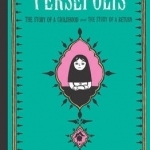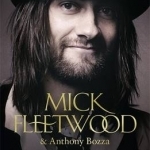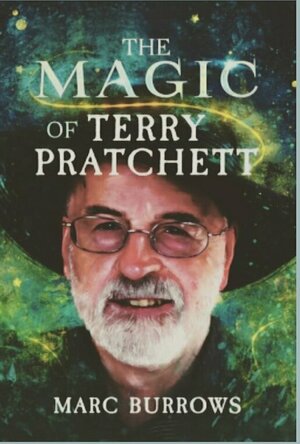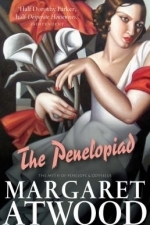Lindsay (1793 KP) rated Let's Talk! Going to the Zoo in Books
Jun 26, 2022
This lovely board book will teach them about baseball and baseball term words. It is adorable and will be enjoyable for children.; It a game between Cows and Bears? Who will win in the ninth inning?
Want to take your youngest fans of baseball to a game? Well, this book can do that without leaving your home—what a time for me to be reading this book. However, the baseball season starts in April, which is Spring. This sports season is still going on, as I write. I thought this book was quite an adorable read. I love the back and forth of the story—it is like being at a real ball game.
Children will learn about baseball and enjoy the rhyming as your read. Parents can help young readers learn to read and learn about a sport. The book is a fast and quick read. Who will win the game of the year? Young fans will enjoy the story, and the pictures stand done well. Baseball is a good family event as well. If you are a baseball fan, you might have a little fan of your own and HomeRun! My First Baseball Game is terrific to have your child or children's bookshelf. They can learn a little about the game through this lovely book.
Anyone can enjoy a book about baseball. It is a good summer sports event to go to and have family fun. You do not need to worry about your toddler holding and to play with this book. It is a board book and sturdy for them.
Lindsay (1793 KP) rated HomeRun! My First Baseball Game in Books
Jun 14, 2022
This lovely board book will teach them about baseball and baseball term words. It is adorable and will be enjoyable for children.; It a game between Cows and Bears? Who will win in the ninth inning?
Want to take your youngest fans of baseball to a game? Well, this book can do that without leaving your home—what a time for me to be reading this book. However, the baseball season starts in April, which is Spring. This sports season is still going on, as I write. I thought this book was quite an adorable read. I love the back and forth of the story—it is like being at a real ball game.
Children will learn about baseball and enjoy the rhyming as your read. Parents can help young readers learn to read and learn about a sport. The book is a fast and quick read. Who will win the game of the year? Young fans will enjoy the story, and the pictures stand done well. Baseball is a good family event as well. If you are a baseball fan, you might have a little fan of your own and HomeRun! My First Baseball Game is terrific to have your child or children's bookshelf. They can learn a little about the game through this lovely book.
Anyone can enjoy a book about baseball. It is a good summer sports event to go to and have family fun. You do not need to worry about your toddler holding and to play with this book. It is a board book and sturdy for them.

A Very Woodsy Murder
Book
From Agatha Award-winning author Ellen Byron, a hilarious new series featuring a sitcom writer who...
Darren (1599 KP) rated Alaska (1996) in Movies
Jun 20, 2019
When their father goes missing, Jessie and Sean aim to go in search of him through the Alaskan wilderness discovering a captured baby polar bear cub that they release who joins them on their adventure, which only attracts the poachers attention as they find themselves chased through the wilderness by the poachers too in a race against time to find their father.
Thoughts on Alaska
Characters/Performance – Jessie is the sister of the siblings, she has embraced the change to Alaska learning to be part of the team with her father, while they both want to search for their father, she is the most prepared of the two. Sean hates his new life in Alaska and wants to move back to Chicago but you can clearly see he is grieving his mother with his behaviour, but with his father missing he will do everything he can to find him, learning to love the beautiful landscape they are part of now. Jake is the father of the family that has given up his 747-pilot job to start a new life in the small town in Alaska, he does spend most of the film trapped in his plane but his character gives Jessie and Sean the reason for going on their adventure. Perry and Koontz are two poachers hunting polar bears, they cross paths with the kids as they menacingly try to recapture the polar bear cub that they had released.
Performance wise, Thora Birch and Vincent Kartheiser are both great in the lead roles as the children in search of their father. Dirk doesn’t have much to do but does what he needs to well. Charlton Heston as the menacing poacher does seem to enjoy the role he plays in the movie.
Story – The story of two young teenagers going into the wilderness to find their missing father is a nice tried and tested formula, this style of film seemed to be the rave for family films around the time too, so to stand out you had to do something different. We get the moments of peril which are good and well-paced but we also get the moments of discovery which are just as important. Obviously, there are negatives here which include the idea the adults are clueless when searching for people in crashes and poachers being just evil people. I would also like to point out, that it is very unlikely a polar bear mother is just going to accept another cub, well that is what David Attenborough has taught me.
Adventure/Family – The adventure the kids get to go on is one I remember watching as a kid going, I wanna do that and I still would like to. The family side of this film is about the unity between a broken family doing everything to stay together and of course having a cute little polar bear helping them out.
Settings – Alaska as a setting, beautiful, stunning, peril filled and perfect for the story being told.
Effects – We only have a few effects in use here, most feels practical with the stunt work and working with a potential deadly animal in a polar bear.
Final Thoughts – This is easily one of the better kids work with animal films of the 90s, one that gives you hope in humanity and a wonderful setting.
Overall: Family night sorted.
https://moviesreview101.com/2018/01/31/alaska-1996/
Lottie disney bookworm (1056 KP) rated The Magic of Terry Pratchett in Books
May 27, 2020
As a 32 year old female, mother and accountant you may be forgiven for expecting my book reviews to be based around chick-lit or classical novels and, although it is the case that I own several very well-read copies of Pride & Prejudice, I am wholly a child of the sci-fi/fantasy genre. Terry Pratchett novels sit alongside George RR Martin, Terry Brooks, David Eddings and Ursula Le Guin in my house; I owned and loved Discworld computer games and probably know every word to the film Labyrinth.
It could therefore be said that I would find Marc Burrow’s biography fascinating regardless: however, I am ashamed to say that, before reading this book, I knew very little about the life of the author whose books I admire so much.
Burrows structures his writing predictably enough, running through the life of Terry Pratchett chronologically, from his working-class upbringing; his career in journalism; the progression in popularity of his novels; his knighthood all the way up to his untimely death from Alzheimer’s. However, this is where an affiliation to any standard biography ends.
It is immediately apparent that Marc Burrows is an avid Terry Pratchett fan, even without reading his foreword, due to the inclusion of footnotes: a writing style which is synonymous with Pratchett. This allows Burrows, as it did with Pratchett, to provide little notes and details which cannot be in the main text without limiting the reading experience. It also allows both authors to inject a large amount of humour into their writing.
It should also be mentioned that no book has gripped me from the introduction in a long time, although I am fairly sure no other book would use the word “crotch” before we even reach Chapter One!
‘The Magic of Terry Pratchett’ is a clever, well-informed biography which perfectly encompasses the humour of the Discworld creator whilst educating the reader of his journey to becoming the icon that he is today. I have no doubt that this has been a labour of love for Marc Burrows: when the kindle says you have 20 minutes reading time left and you have reached the bibliography, you know that a whole lot of research has been done!
Sir Terry also had the tendency to embellish his stories and this is a factor Burrows does not try to hide; highlighting when facts don't quite add up and almost analysing the situation to try and discern the truth. This was such a refreshing approach to a biography: the wool is not pulled over the eyes of the reader, nor the subject blindly believed for convenience.
It is important to note that this book transgresses the existence of Discworld and “the business with the elephant” and encompasses all of Sir Terry’s work: from short stories in the local paper to his TV documentary on assisted death.
The reader will also learn of the involvement of Rhianna Pratchett in her father’s work and discover that the “man in the hat” was not always the easiest man to work with.
I am going to need at least 3 copies upon release- can we preorder?
Rachel King (13 KP) rated The Penelopiad in Books
Feb 11, 2019
Margaret Atwood does an excellent job of portraying the character of Penelope in a unique way without disrupting what we know of her from the original text. In this book, Penelope tells her story from beyond the grave, interspersed with her interactions with other known characters of that time, such as her self-involved cousin, Helen of Troy. Penelope balances many opposing traits into one body - from the bitter housewife, to the scheming seductress, to the self-sacrificing devotee - and still comes out as an admirable woman and wife that few could emulate so convincingly.
The chorus of maids served as both a comedic interlude in a rather tragic story and as further commentary of Penelope's story and their shared fate. Irony played a large part in the maids' story and final demise. Margaret Atwood's explanation for their cumulative death following the deaths of the numerous suitors made perfect sense according to the arrogance and bravado attributed to Odysseus from Penelope's account.
In many ways, this book bears strong themes of feminism, despite Penelope's loyalty to Odysseus. Though I imagine that The Odyssey portrays Odysseus as a grand hero worthy of respect, Penelope's narrative of him both in life and in death makes him out to be at times a philandering womanizer with immeasurable luck and other times a melodramatic little boy with an overactive imagination and an insatiable appetite for adventure. The ones who seemed to endure the most suffering in this plot were the ones that were shown the least respect and recognition - the women.

Persepolis I & II
Book
Wise, often funny, sometimes heartbreaking, Persepolis: The Story of a Childhood tells the story of...

Play on: Now, Then and Fleetwood Mac
Mick Fleetwood and Anthony Bozza
Book
"After forty-six years of being on the road, now is the right time to look back in a way I've never...
The Meaning of Rice: And Other Tales from the Belly of Japan
Book
"The next Bill Bryson." (New York Times). In this often hilarious yet deeply researched book, food...

Lonely Planet Alaska
Lonely Planet, Greg Benchwick, Brendan Sainsbury and Catherine Bodry
Book
Lonely Planet: The world's leading travel guide publisher Lonely Planet Alaska is your passport to...





